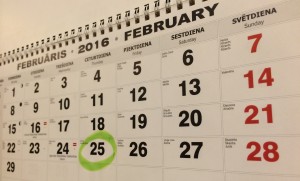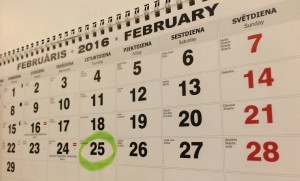
On February 25 the new collection of articles “Fortress Russia: Political, Economic, and Security Development in Russia Following the Annexation of Crimea and its Consequences for the Baltic States” issued by the Centre for East European Policy Studies (CEEPS) will be presented.
What is the essence of Putin’s ideology and where does it lead Russia? What kind of fortress is modern Russia? Is Russia’s economic self-isolation possible? Can the Russian economy survive and be self-sustainable? What are the consequences of Russia’s economic crisis in the Baltics? Will Russia’s armament programme proceed as planned? What security measures should be implemented in Baltic countries to reduce the risks posed by Russia? Answers to these and the other questions are looked for by Latvian, Lithuanian, Estonian and Russian researchers in the new collection of articles.
Presentation of the book will be held on February 25, 11.00 a.m., in the Hotel Bergs, Elizabetes street 83/85. The working language will be English.
There will be an opportunity to ask questions to the authors of the book at the end of the presentation.
The group of authors of the book includes deputy editor for the website EJ.RU Alexander Golts (Russia), head of the Department of Strategic Assessment at the Centre for Situation Analysis, at the Russian Academy of Sciences Sergey Utkin (Russia), publicist and expert on the regional policy issues Dmitry Oreshkin (Russia), Editor-in-chief of the analytical portal The Insider Roman Dobrokhotov (Russia), Research Fellow of the International Centre for Defence and Security (ICDS) Riina Kaljurand (Estonia), the leading Lithuanian expert in information warfare, researcher in the Institute of International Relations and Political Science (Vilnius University) Nerijus Maliukevičius (Lithuania), expert on political and international relations Simonas Algirdas Spurga (Lithuania), lecturer of the General Jonas Žemaitis Military Academy of Lithuania Liudas Zdanavičius (Lithuania), Chairman of the Board of CEEPS Ainārs Lerhis and executive director of CEEPS Andis Kudors, who is also an editor of the new book.
“The ‘Red Fortress’, ‘the Soviet fortress’, ‘the nationalist fortress’, ‘the besieged fortress’ – these are just a few terms used at various times to describe what was going on in Russia in its different historical epochs. The theme of a fortress is inseparable from the defence arena. If Russia has to defend itself, then who is the attacker? Does Vladimir Putin really think that NATO plans to attack Russia? Presumably he does not. But this is not what really matters. The most important thing is whether Russian society will believe the stories regularly shown on TV, telling them Russia is a besieged fortress from enemies who do nothing else than forge plans to attack and divide the country”, the new book’s editor Andis Kudors says.
This collection of articles deals with political and economic processes in Russia from the annexation of Crimea until late 2015. The book is subdivided into four parts: Ideology, Politics, Economy and Security.
The collection of articles has been created with financial support on the part of Friedrich Ebert Foundation.
Please, register by sending e-mail to: info@appc.lv.
The program of the event is available here.
